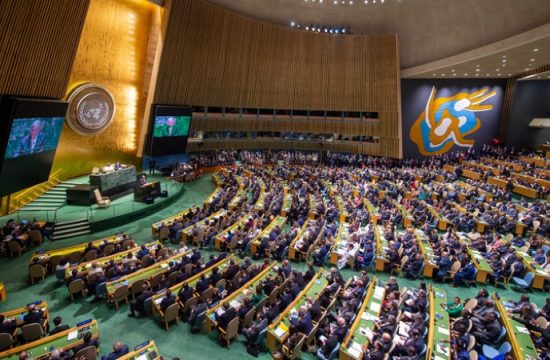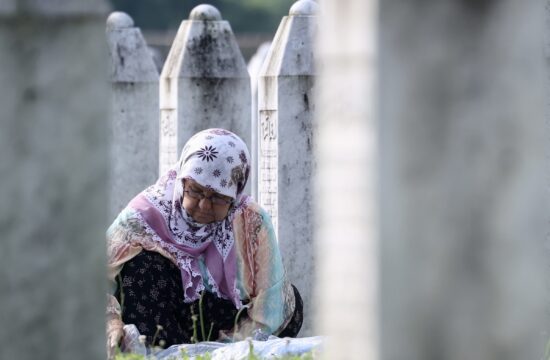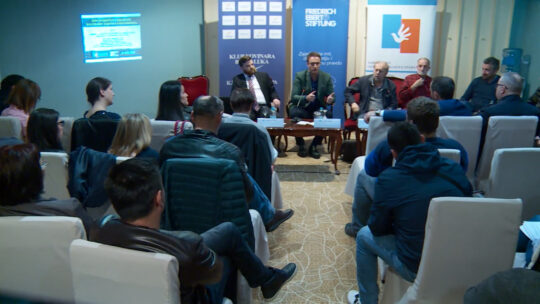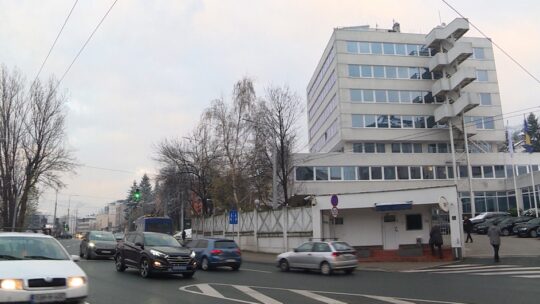The situation in Bosnia and Herzegovina requires constant attention, said the High Representative to Bosnia and Herzegovina, Valentin Inzko, during the presentation of the 53rd report on the state of affairs in Bosnia to the UN Security Council.
Inzko, who oversees the implementation of the Dayton Peace Agreement which ended the war in Bosnia, said that certain positive developments are visible and that this is an important period for the country.
“Certain positive steps by Bosnian leaders, in terms of Bosnia's Euro-Atlantic integration process, have been made. This is an important time for Bosnia to become an EU candidate state, after delivering answers to nearly 20,000 questions of the EU Commission's pre-accession-talks Questionnaire. Several strategies and packages have been adopted, especially in the field of road construction. This shows that when political leaders have a common goal, that they can achieve solutions,” Inzko said. “Unfortunately, there were only a few of such goals. At the same time, the competent bodies at the state level are constantly dealing with the issue of the logic of engagement in the European integration process. The politicians used an inflammatory rhetoric, the escalation of which is already visible. I am extremely worried about politicians who continue to make controversial statements, especially about rearmament.”
In this context, he said he was primarily thinking about the arms purchase by the Serb dominated, Republika Srpska (RS) entity's Interior Ministry, who purchased some 5,000 automatic rifles from Serbia. He claims there is a general trend of armament. The inflammatory rhetoric is used by politicians from RS who continue to deny the state of Bosnia and to support the secession of that entity from Bosnia. Inzko claims the RS politicians continue to support convicted war criminals and the Croat people are demanding territorial reintegration and disintegration of the country.
Inzko recalled that he spoke of the looming political crisis in Bosnia, several months ago.
“Six months ago I spoke of the political crisis amid the general election, unless there is a change in the way in which the delegates in the Federation of Bosnia and Herzegovina (FBiH) entity's House of Representatives are elected, via changes to Bosnia's Election Law. If there are no changes to the Law, it will be very difficult, if not impossible, to form the Government. The solutions do exist and they could provide a compromise if the politicians would give up on their maximalist demands,” he said.
He also expressed his concerns with the field of the rule of law, where the situation has worsened. There are still refusals to implement court verdicts and this can be seen in the example of the Constitutional Court's decision to pronounce certain articles of Bosnia's Criminal Code unconstitutional. Unless the Court makes a different decision, Bosnia could face problems in the prosecution of corruption cases.
“The actors who are against amendments to the Criminal Code of Bosnia are the same ones who deny Bosnia's statehood,” Inzko concluded.
Bosnia's Constitutional Court declared some of the Criminal Code's articles addressing the process of granting immunity from legal prosecution, physical search and special investigative actions unconstitutional. Lawmakers were supposed to adopt adequate changes but have been dragging their feet on the issue, thus jeopardizing hundreds of investigations into terrorism and organized crime which the police and the State Intelligence Agency have conducted.
“The situation in Bosnia requires constant attention. Bosnia has done a lot to establish security, but this progress cannot be taken for granted. Bosnian leaders should remain committed to the EU integration process. Certain political actors are using inflammatory rhetoric, and due to this uncertainty in the country, a large number of Bosnian citizens are leaving the country. I wish to ask all of us to be united in our approach. I believe we all wish to see Bosnia as a great example of tolerance and reconciliation where all the cultures are living together, which is possible,” Inzko concluded.




